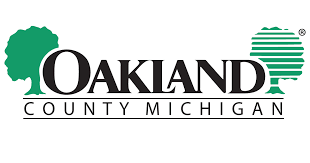Contact: Hugh McDiarmid 517-230-7724
Today, Michigan leaders encouraged those without residential water service due to nonpayment to reach out to local water departments for reconnection. All occupied homes without water are entitled to have service reconnected by local water departments based on Gov. Gretchen Whitmer’s Executive Order 2020-28. Hand washing and proper hygiene can help slow the spread of the highly contagious COVID-19 virus.
On March 28, Whitmer ordered the restoration of water service to ensure at-risk households have access to clean water for hand washing and other critical sanitation needs. Since then more than 1,500 residences have had water service restored, however many residents may not be aware of their eligibility, have concerns about the process or have experienced barriers.
“Running water is essential to protecting families from COVID-19 transmission, and we want to make sure all Michigan residents have access during this health emergency,” said Governor Whitmer. “For those who’ve not yet been reconnected, there is help available both at the local and state levels to get the tap turned on.”
No upfront payment is required for reconnection. All occupied residences where nonpayment was the reason for disconnection are required to be reconnected under the governor’s order. It remains in effect for the duration of the COVID-19 emergency, unless connection of the home creates a public health risk for others.
Residents are not required to provide a copy of their deed or lease agreement to have water restored during the COVID-19 emergency. Although water bills will continue to accrue during the emergency, residents can work with local water departments to arrange for payment at the conclusion of the emergency.
If residents experience barriers to reconnection, they can contact the Department of Environment, Great Lakes and Energy (EGLE) at 1-800-662-9278.
“Slowing the spread of COVID 19 requires handwashing and that is virtually impossible without water,” said EGLE Director Liesl Clark. “That’s why the executive order requiring local water departments to reconnect homes during this health crisis was issued. It is important that everyone understands the steps to take to make that happen.”
Michigan residents without running water should take the following steps:
- Contact your local water department and tell them you are eligible for reconnection under the governor’s executive order. If you are unsure how to reach your water department, contact your local city, village or township offices to find out. Detroiters can call the city’s reconnection hotline at 313-386-9727.
- If you are unable to reach your water provider or they are unwilling or unable to restore service, you may obtain assistance from the Michigan Department of Environment, Great Lakes, and Energy (EGLE) at 1-800-662-9278. EGLE Clean Water Public Advocate Ninah Sasy monitors every request for assistance. She will work with local suppliers to resolve the concern and will elevate issues directly to the office of Governor Whitmer as necessary.
- Once your service is reconnected, it is important to properly flush the pipes to clear stagnant water that may have collected contaminants. Guidance on flushing is available in English, in Spanish, and in Arabic. Guidance on flushing appliances that use water – like refrigerator icemakers or water softeners, is also available in English, in Spanish, and in Arabic. A video (in English) on how to properly flush systems is available here.
For residents struggling with heat and electric bills during the COVID-19 pandemic, utilities across the state have suspended non-payment disconnections for low-income and senior customers for the duration of the emergency. Information and tips on managing utility bills are available here through the Michigan Public Service Commission.
Information around this outbreak is changing rapidly. The latest information is available at Michigan.gov/Coronavirus and CDC.gov/Coronavirus.




 Health Order for screening at businesses 2020-10.pdf
Health Order for screening at businesses 2020-10.pdf


